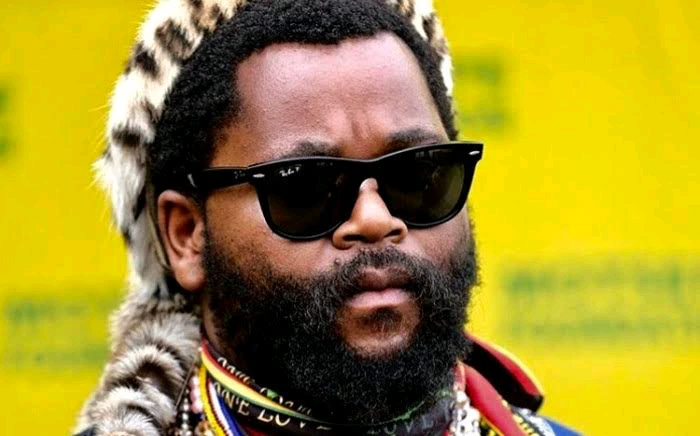Renowned South African artist Sjava, known for his soulful voice and captivating lyrics, has recently taken to social media to express his disappointment with music piracy and the approach of some of his fans towards his work. In a heartfelt post, Sjava revealed how he has come across his own music being illegally downloaded from random websites and shared with unauthorized tags, highlighting the issue of music piracy and its impact on artists.
With a string of successful albums and a loyal fan base, Sjava has made a name for himself in the music industry both locally and internationally. However, despite his popularity, he has been grappling with the harsh reality of music piracy, which has been rampant in the digital age. In his social media post, Sjava expressed his frustration with fans who claim to support him by showing off how much they listen to his music, but then go on to illegally download his songs from unauthorized sources.




“I see y’all posting screenshots of how many times you’ve played my music on your devices, but when I try to listen to the same song, it’s nowhere to be found on authorized platforms. Instead, I find it being shared on random sites with someone else’s tag on it,” Sjava lamented in his post.
Music piracy is a serious issue that has plagued the music industry for years, with artists losing out on potential revenue due to illegal downloads and unauthorized sharing of their music. Many artists, like Sjava, rely on music sales and streaming platforms as their primary source of income. However, when their music is downloaded or shared without proper authorization, they lose out on royalties and revenue that they rightfully deserve for their hard work and creativity.
In addition to the financial impact, music piracy also affects the integrity and artistic vision of the artist. Unauthorized downloads and sharing often result in low-quality versions of the music being circulated, which may not do justice to the artist’s original work. Moreover, when music is illegally downloaded and shared with someone else’s tag or branding, it can lead to confusion among fans and dilute the artist’s brand image.
Sjava’s experience highlights a larger issue within the music industry, where piracy continues to be a persistent problem despite efforts by artists, labels, and authorities to combat it. The ease and convenience of digital downloads and file sharing have made it easier for pirated music to circulate online, resulting in significant losses for artists and the music industry as a whole.
In his social media post, Sjava appealed to his fans and music lovers in general to support artists by accessing their music through legitimate channels, such as authorized streaming platforms and official websites. He emphasized the importance of respecting the intellectual property rights of artists and valuing their creative efforts by obtaining their music in a legal and authorized manner.
Sjava’s message struck a chord with his fans and fellow musicians, with many showing their support for his stance against music piracy. Fans expressed their solidarity with the artist and pledged to obtain his music only from legitimate sources. Many also shared his post, spreading awareness about the negative impact of music piracy on artists and the need for fans to support them through legal means.
Sjava’s candid revelation about his struggles with music piracy has sparked a broader conversation within the music community about the need for stricter measures to combat this issue. Industry experts have emphasized the importance of educating consumers about the value of music and the impact of piracy on artists’ livelihoods. They have also called for stronger enforcement of copyright laws and regulations to deter illegal downloads and sharing of music.
Moreover, some artists have been taking proactive steps to protect their music from piracy, such as watermarking their songs, utilizing digital rights management (DRM) technologies, and monitoring online platforms for unauthorized sharing.